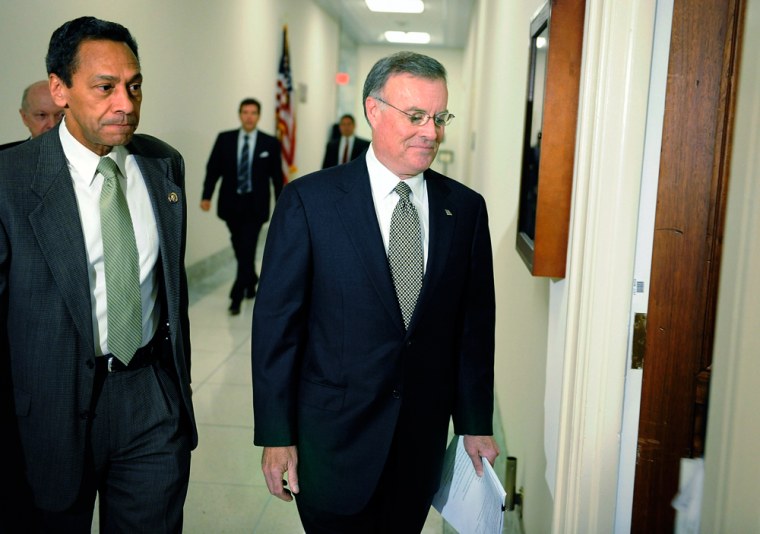House lawmakers on Thursday accused the federal government of orchestrating a "shotgun wedding" between Bank of America Corp. and Merrill Lynch that cost taxpayers $20 billion, as a top bank executive said publicly for the first time that he was pressured into going through with the deal.
Bank of America Chief Executive Officer Kenneth Lewis testified that the federal government threatened to remove board members at his bank if it reneged on a promise to acquire Merrill Lynch, despite Merrill Lynch's crumbling financial state.
"What gave me concern is that they gave that threat to a bank in good standing," Lewis told the House Oversight and Government Reform Committee.
The panel is investigating claims that then-Treasury Secretary Henry Paulson and Fed Chairman Ben Bernanke pressured Lewis and urged him to keep quiet about Merrill Lynch's financial problems. Not divulging that information would have violated Lewis' fiduciary duty to the bank's shareholders.
Lewis said he did nothing wrong. In the end, the decision to go ahead with the acquisition — with the promise of government support — was in everyone's best interest, he testified.
"This course made sense for Bank of America and its shareholders, and made sense for the stability of the markets," he said. "We viewed those two interests as consistent."
Lawmakers on the committee said they remain troubled by internal e-mails and other documents provided to them by the Fed after they issued a subpoena.
One e-mail, by an employee at the Richmond Federal Reserve, said Bernanke had made it clear that if Bank of America backed out and needed financial assistance, "management is gone."
Rep. Darrell Issa of California, the panel's top Republican, said the documents also "show that the government sought to manage the public disclosure of Merrill's mounting losses in order to control the situation."
Democratic Committee Chairman Edolphus Towns of New York said serious questions remain as to the timing of events.
"Why did a private business deal — announced in September and approved by shareholders in December — with no mention of government assistance, end up costing taxpayers $20 billion in January?" Towns asked.
Bank of America has received $45 billion from the government's $700 billion Troubled Asset Relief Program. As part of that money, the bank received $20 billion in January after Lewis requested it to help offset mounting losses at Merrill Lynch & Co.
Just a few weeks after the deal was completed, Bank of America's fourth-quarter earnings report showed the hit taken by its balance sheet because of the Merrill Lynch transaction, which made Lewis the target of shareholder anger.
In January, Bank of America reported a $2.39 billion fourth-quarter loss, and Merrill Lynch disclosed a loss of more than $15 billion.
